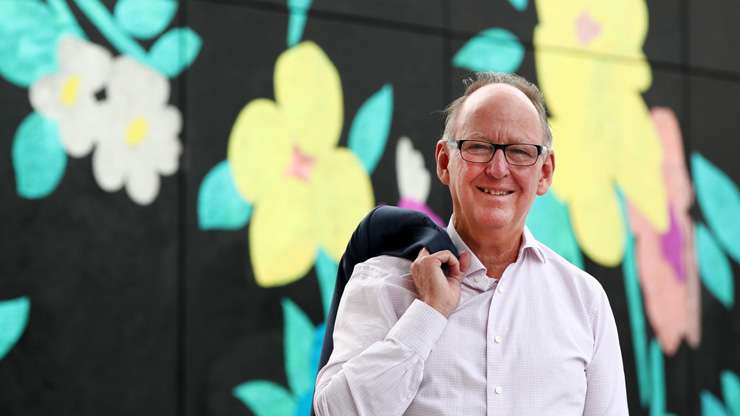Industry insiders are predicting an exodus of real estate agents later this year if the market remains unchanged as property sales dip and the number of newly licensed agents grows.
The number of licensed real estate agents across the country rose 9.4% in two years to 15,962 between the year ending June 30, 2020 and June 30, 2022, and in the last year that grew another 3%, according to Real Estate Authority figures.
But at the same time, the latest REINZ figures showed the total number of sales across the country dived 26% to 74,453 for the year ended June 2022 compared to 101,106 the previous year.
Just under half (46%) of all the country’s real estate agents live in Auckland, and the number of licensees – which includes residential, lifestyle, commercial and rural agents – in the last three years has risen a whopping 18%. Auckland has also seen the biggest drop in sales, down 43% in June this year compared to June 2021.
Start your property search
In other areas, the increase in licensees has been relatively stable growing by 4.6% in the Waikato, 1.29% in Bay of Plenty, 6.5% in Canterbury / West Coast and 0.5% in Wellington / Wairarapa.
Professionals McDowell Real Estate principal Steve Lovegrove expects to see the number of licensees fall in the next year because people won’t want to enter the industry in a lower market, older agents will retiree due to the changing market conditions and lower income earners who only do the odd deal may decide it’s not worth their effort.
“They hang on and try and convince themselves it’s all ok, everything is going to come right in a month or two. You get six months down the track and for us now probably only another two or three months down the track, if they find that things don’t come back in spring by Christmas you will see an exodus,” he said.
“As the number of sales and transactions diminish – if that continues to remain subdued, the number of sales people – some of them aren’t going to earn any money and they will have to give up.”

REA chief Belinda Moffatt says there was a big spike in the number of people joining the profession in 2020 and 2021. Photo / Supplied
He said agents will start making New Year’s resolutions about going back to other industries whether that be school teaching, the airline business or hospitality.
“They will get back to their other industries or where they know because it didn’t happen for them this year for real estate. So, you won’t see it yet, but watch this space.”
Lovegrove said it went back to the old 80 / 20 rule where in this market 20% of salespeople will make 80% of the income.
In Rotorua, where his agency operates, there are 124 salespeople and last month only 43 sales.
“The salesperson who might have listed and sold four properties a month might only be selling one property a month now. By volume I would suggest there are people that are severely seeing a drop.
“What’s critical to real estate is in fact turnover because if you don’t have someone listing a house and selling a house, we make zero. It doesn’t matter whether that house is $750,000 or $1m – if they just don’t list and sell it it’s zero for us.”
Harcourts Glenfield agent David Ding said it is a tough industry to be in at the moment with their only form of income - commissions - dropping significantly.
Interest.co.nz estimates the commission real estate agencies earned in the second quarter of this year dropped 36% compared to the same period in 2021, and Ding’s own experience supports these figures.
The average income for real estate agents is $84,500 a year, according to the Ministry of Business, Innovation and Employment data released in 2019, but because it is based on commission – usually the percentage of a house sale – it can vary greatly.
Ding said most agents are “hanging in there”, but expects to see more agents leaving at the end of the year or next year.

Bayleys Remuera agent David Rainbow: “It’s tough for everybody not just for real estate agents.” Photo / Fiona Goodall
“It takes time because they have savings, they have faith in the industry and still expect the OCR (Official Cash Rate) to have reached the peak and start dropping which will hopefully help the real estate market.”
He suspects the agents who entered the industry over the last few years to make money will be the first to leave, while those who view it as a career will be using the current period to boost their branding.
“If they have pressure from their family, mortgage, kids – they would be probably better to find another job now.”
Ding only knows of two agents who have quit the industry so far, adding that there are very few signing up too.
“I’ve seen a lot of agents still hanging in there, but definitely we see less and less – very few people joining the industry.”
He usually carries out a lot of appraisals during winter as people got ready to put their properties on the market in spring, but has done very few so far and is hoping that might pick up in August.
Of the four appraisals he did in the last two weeks, three were selling to move to Australia and the other was upsizing.
Bayleys Remuera agent David Rainbow said when the market was hot some people joined the industry and were selling houses as a part-time job, but now that times are tough they have decided not to bother.
“We are probably getting a drop in agents, but the agents dropping may not have been what I would term a full-time agent in the first place.”
In his office of 35 real estate agents, they are all full-time and no one has left yet.

REINZ chief executive Jen Baird: “We expect to see some people in the profession move on to other roles.” Photo / Supplied
“It’s tough, it’s tough for everybody not just for real estate agents, for everyone. You only earn money when you get a sale.”
Further south, Harcourts Invercargill manager Wayne Ellis thought it was too early to know whether agents will leave.
“I know sales are down last month, yes they are, but I think that the good agents have got good habits and pretty good systems to generally work through these different cycles.”
He said there were some operators who treated it as a part-time job and they were the ones who might suffer.
Invercargill’s numbers are less dramatic than elsewhere with about 100 agents and 71 sales last month.
REINZ chief executive Jen Baird said experienced real estate agents see the current market as being back to normal after two very buoyant years, but that it will be extra pressure on newcomers.
“In a slower market, we expect to see some people in the profession move on to other roles. It’s likely too early in this part of the cycle to measure this number. REINZ has over 17,000 members and we have not seen this fall in the first 6 months of 2022.”
The number of active licensees recorded by the REA is only a rough estimate on how many salespeople there are because not all licensees are selling every day and others may have left but choose to keep renewing their licences.
REA chief executive Belinda Moffat said there was a strong increase in new licensee applications over 2020 and 2021 due to property being in demand and changes in the labour market because of the impact of Covid-19, but this year that rate of growth has started to flatten out.
“This may be in response to declining sales volumes, and/or the changing Covid environment.”
“Market movement, and a reduction in either supply or demand in real estate may impact people’s decisions to become or remain licensees. Equally, even in a cooling market other factors such as specific sales opportunities and the availability of career alternatives can be incentives for many licensees to remain in the sector.”














































































